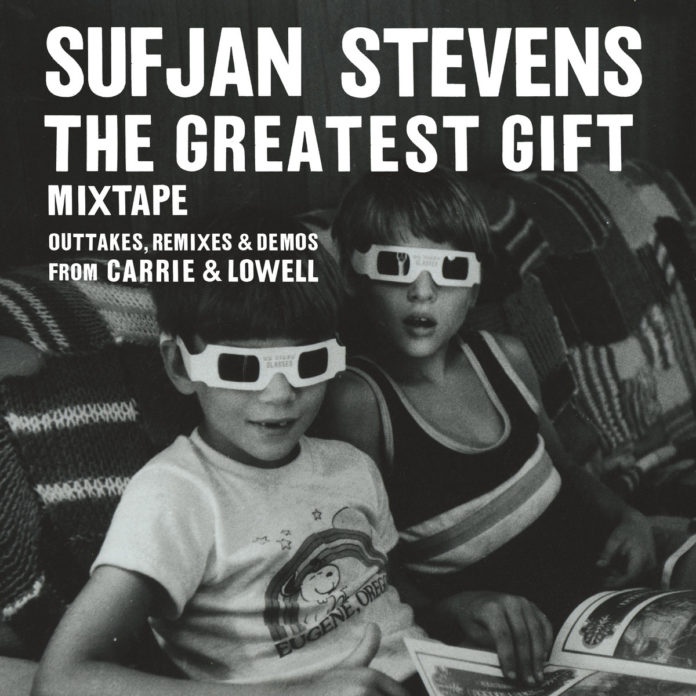Sufjan Stevens’ newest release The Greatest Gift Mixtape acts as an extended counterpart to his successful 2015 album, Carrie and Lowell. On the album cover, there is a brief description of what listeners should expect from this collection: “Outtakes, Remixes, and Demos from Carrie and Lowell.” The release includes four unreleased tracks, which could have fit into its 2015 parent. Furthermore, the remixes are not only from Stevens himself, but also from Doveman (Thomas Bartlett), Helado Negro (Roberto C. Lange), and 900x (James McAlister). Adding to the fact that McAlister worked with Stevens on their collaborative effort, Planetarium, released in June 2017, the sounds on this mixtape are reflective of various musical ideas and influences. Though these tracks are professionally recorded as you would expect, there are other tracks that revert back to this generation’s rawest basic form: iPhone demos.
Carrie and Lowell was written about heavy subjects such as the passing away of Stevens’ mother, empty relationships, and melancholic nostalgia. Considering these emotional topics, The Greatest Gift spreads a new strain of sadness, but also liberation. The re-done works such as “Drawn to the Blood” and “Fourth of July” are no longer the bare acoustic songs listeners are used to. These staple tracks have more depth and substance instrumentally: penetrating bass, moving percussion, and even a techno feel. An interesting twist to the old tracks give a new interpretation musically, emotionally, and lyrically.
It can be argued that the four unreleased tracks should have been included in Carrie and Lowell. Fans who listen to these uncovered gems would cry at how pure they sound. Yet, there is something more that these tracks provide that don’t exactly mesh with the previous record. Instrumentally, they can be less acoustic, more electronic. They match the sort of depth that the remixes give, a different kind of contemplative sound. Still, for the listeners who prefer more acoustic songs, there are the iPhone demos that peak interest in Stevens’ songwriting process.
The first track of the record, “Wallowa Lake Monster,” sings about folklore and mythical creatures such as the “Leviathan” and the “Demogorgon,” a magical song that eludes symbolism and childhood stories about the unknown. “The Hidden Story of My Life” takes a glimpse into a nomadic lifestyle where Stevens takes on multiple different characters: “a rocker,” “a compost preacher,” “a biker,” “a Subaru driver,” etc. The lyrics of these new tracks are very Sufjan Stevens-esque, which listeners just do not get to witness often in other artists’ works. Stevens’ lyrics are very unique and have always been, so it is a treat to hear more of them in this day and age of ever-changing music trends.
It is debatable that this addition is essential to have the full “Sufjan Stevens” experience. Yet, if Carrie and Lowell is a listener’s favorite release, then The Greatest Gift is certainly worth the listen. Stevens’ fanbase is mainly comprised of folk fans, but it can also dip into the light electronic audience. This mixtape appeals more to the latter. Nonetheless, this collection is beautifully created, inciting different interpretations and emotions in a darkly contemplative way.


